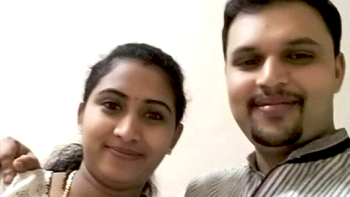New Delhi, Apr 23: A Pakistani national and the husband of Chikku Robert, a nurse from south Indian state of Kerala who was found murdered at her residence in Oman, have been put under detention and are being investigated in the case, External Affairs Ministry said on Friday.
"On 21st April in Salala Oman, a nurse from Kerala, Chikku Robert was found murdered. Our mission in Muscat has informed us that the royal Oman police is currently investigating her death. A neighbour, who is a Pakistani national and her husband are under detention and are being investigated.
"The Embassy is in touch with the police authorities concerned. Her mortal remains are in a mortuary in the custody of royal Oman police. The Mission in Oman will continue to follow up the case with authorities concerned including release and transportation of the mortal remains after the investigation is completed as per the wishes of the family," MEA Spokesperson Vikas Swarup said.
According to media reports from Oman, Robert (25) was found stabbed to death at her residence. She was five months pregnant, reports add. Chikku Robert, a native of Angamaly in Kerala, got married to Linson, hailing from Changanassery, seven months ago. Both the husband and wife were reportedly working at the same hospital.





Comments
?????: http://www.ccvim.org/?????????????????????????????????????????????????????????????????????????????????????????????????????????????????????????????????????????????????????????????????????????????????????????????????
@Jyothi/Vasanth/Subbu
and
All Sanghis here bleating over this murder should know that it didn't happen in India. In Gulf countries, Murder is murder. They don't care if the person is Muslim/Hindu/Christian or others. Justice will be done, unlike
Add new comment